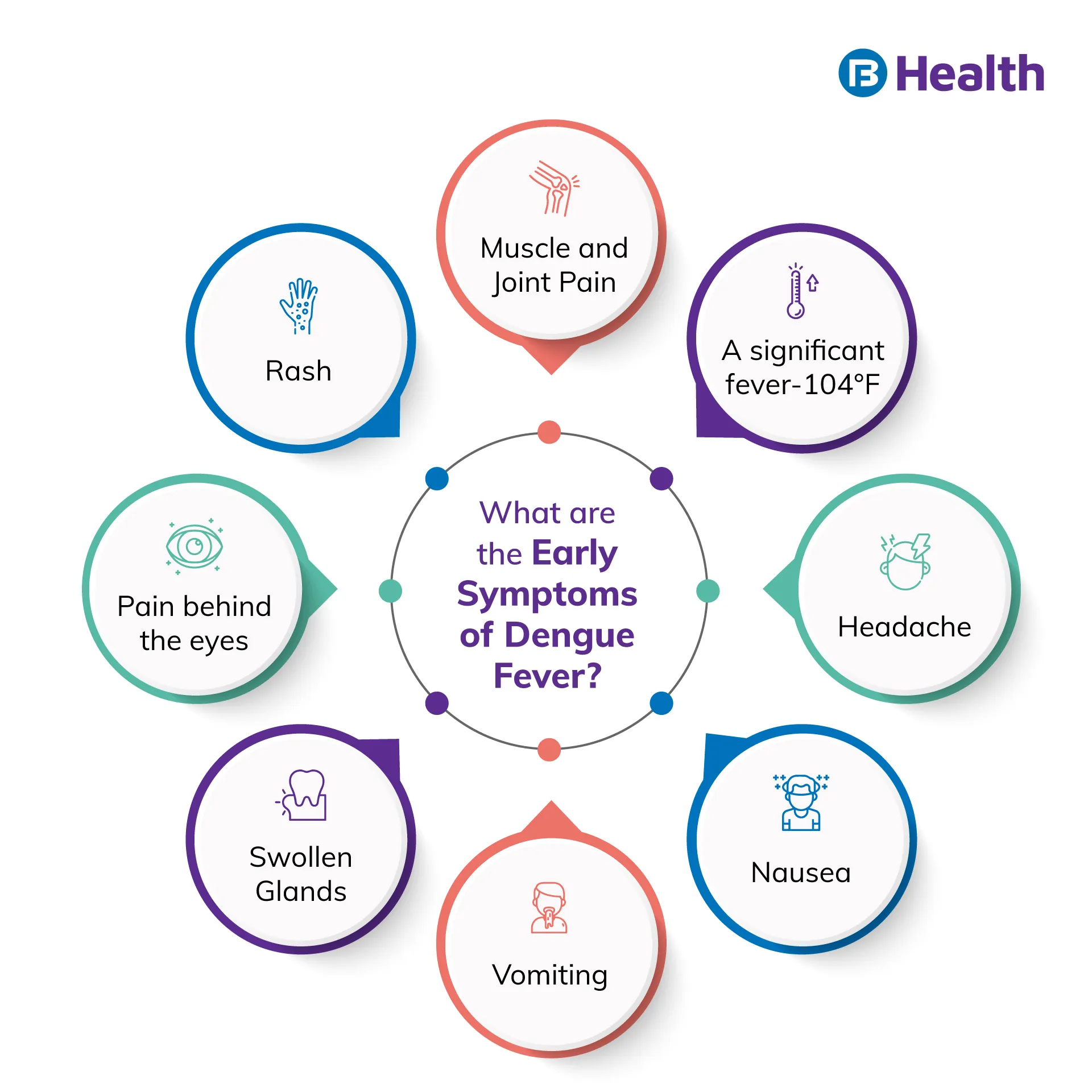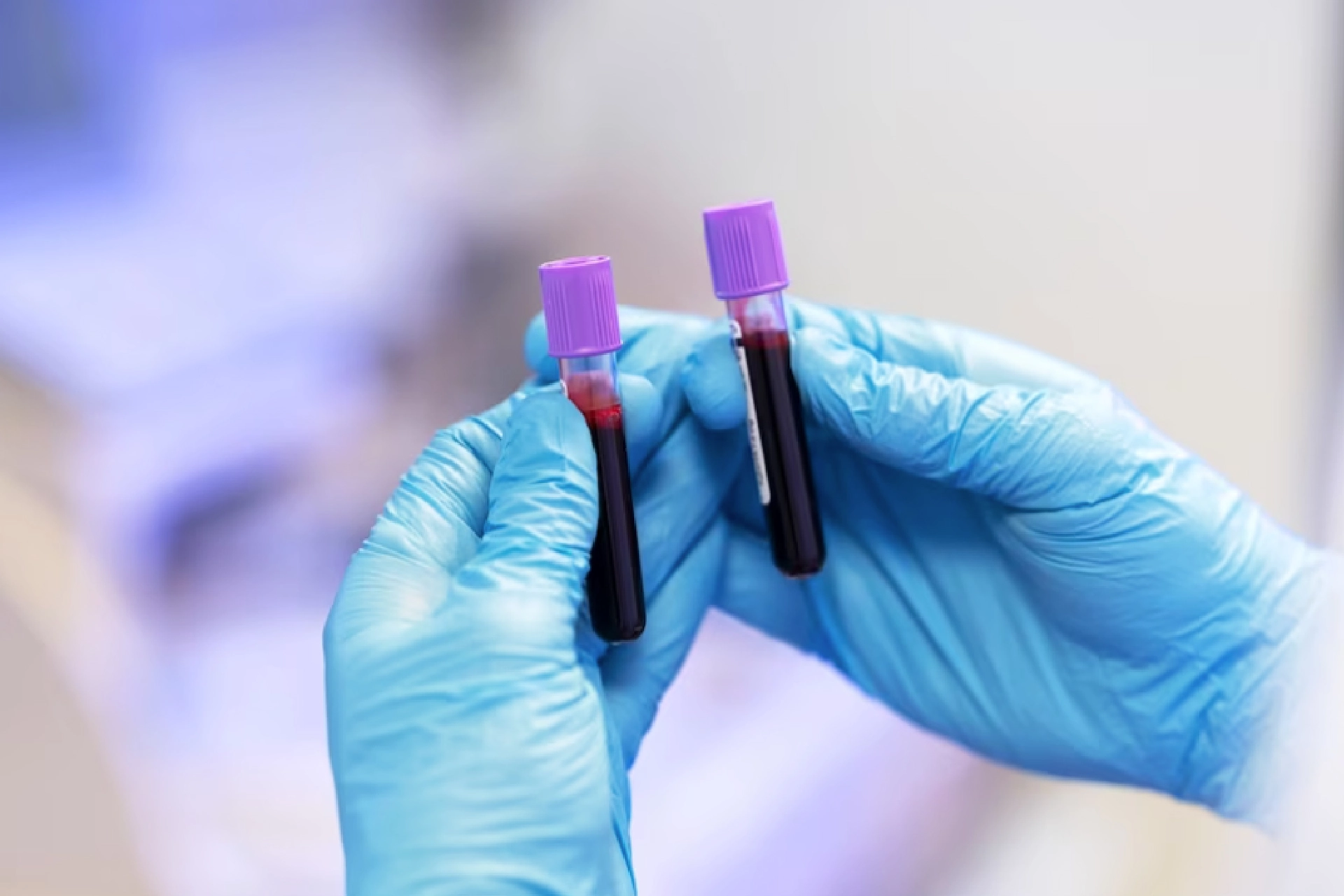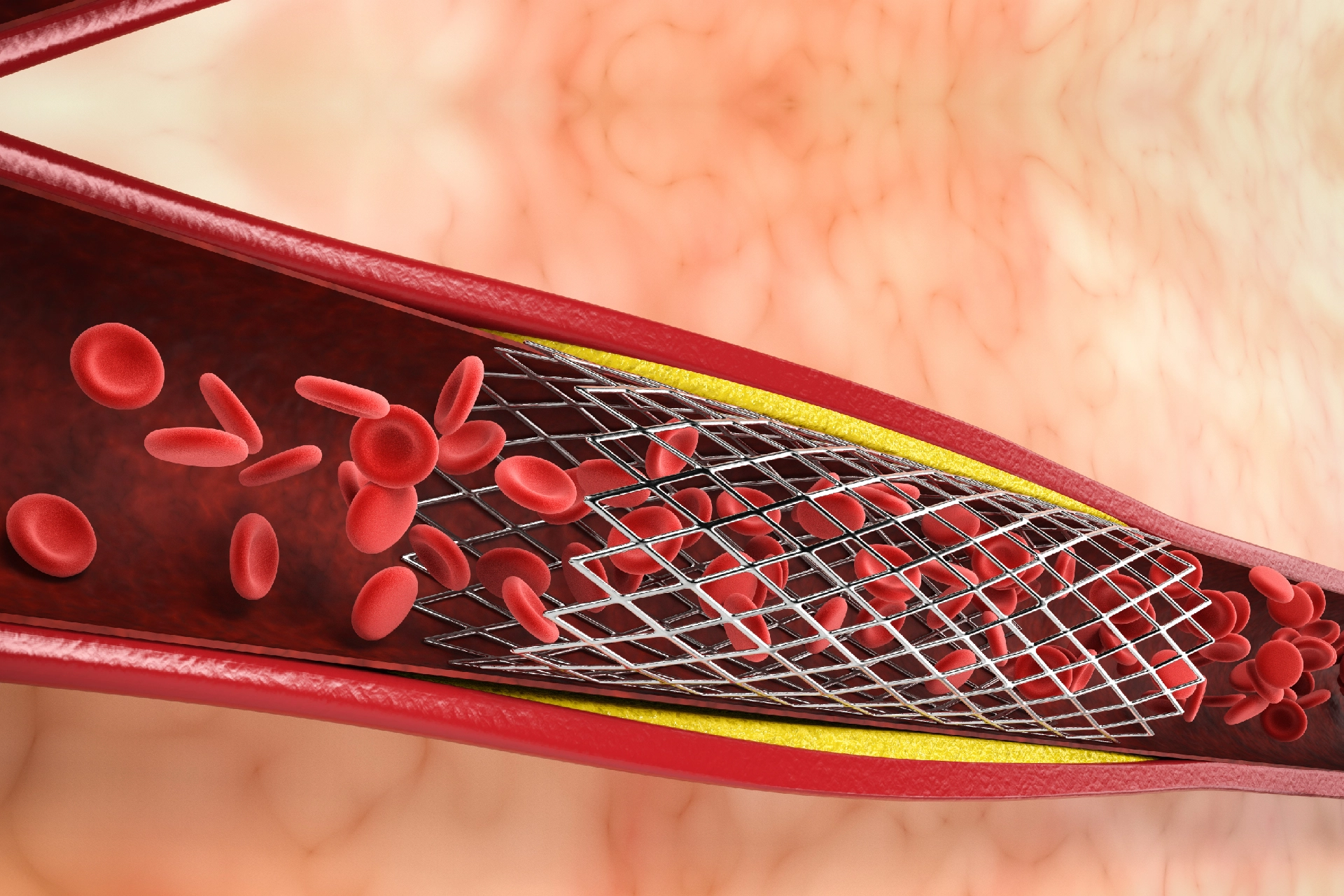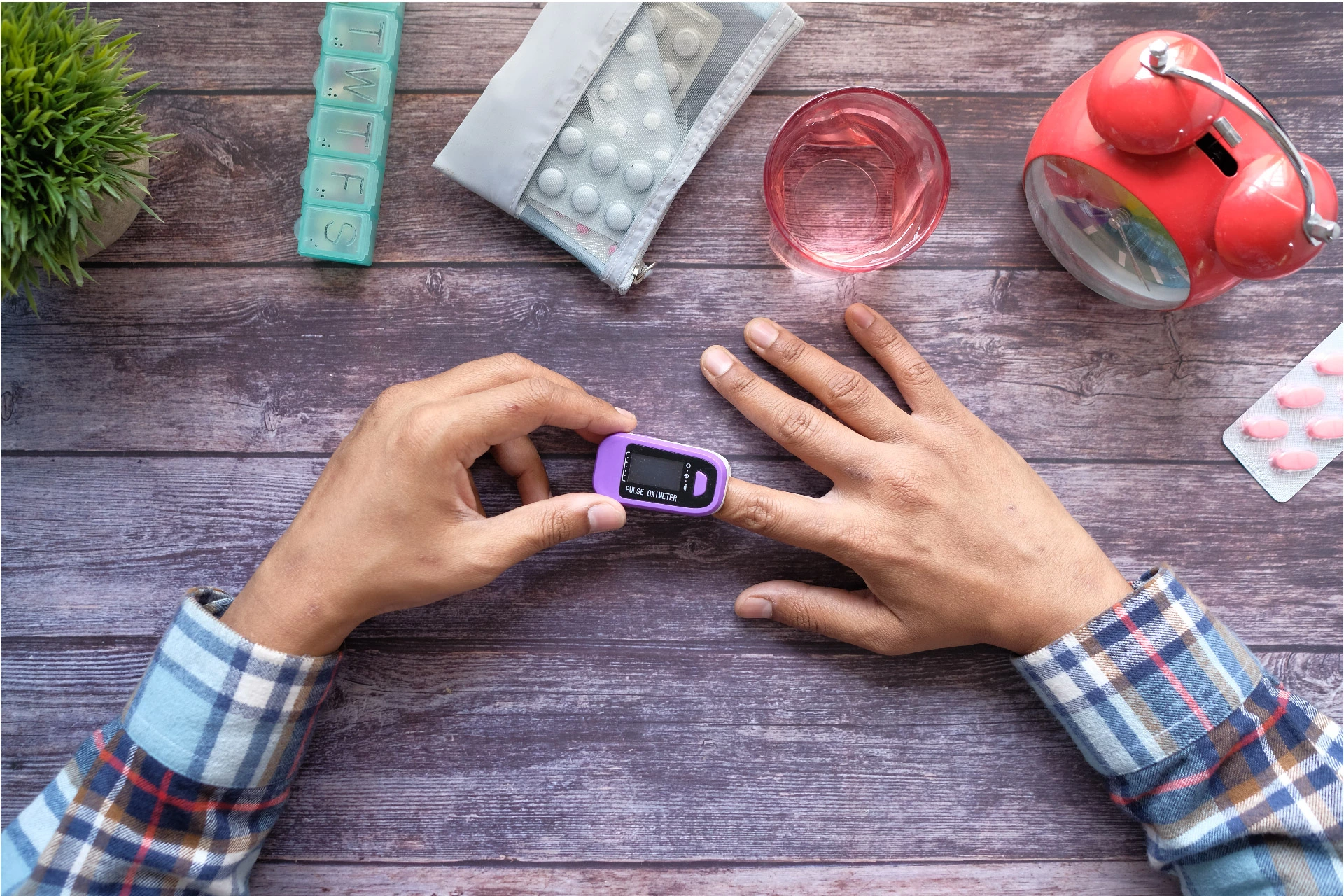Health Tests | 7 min read
Dengue Platelet Count: Test, Result and Treatment
Medically reviewed by
Table of Content
Synopsis
Dengue Fever is a vector-borne viral disease caused by the Dengue virus. As the country is in the midst of Dengue season (June to November), it is prudent to know more about this disease. Let’s find out more about the symptoms of dengue fever, the dengue fever test, and ‘dengue platelet count’ – a striking feature of the disease.
Although the disease is easily curable, unfortunately, it claims several lives in India every year. This further emphasizes the need to educate oneself on the simple ways in which you can prevent dengue fever in your household and your community.
Key Takeaways
- Dengue is a treatable disease caused by a mosquito bite from an infected mosquito
- The most common way to test for dengue virus is by a blood test such as Dengue platelet count test
- A fall in platelet count below a specific value means a person has dengue
What is Dengue Fever?
Before we proceed any further with dengue platelet count tests and early symptoms, it is important to understand the disease first.
Dengue fever is a viral disease found in the tropical and sub-tropical regions of the world. The disease is caused by infected mosquitoes of the Aedes species (A. aegypti and A. albopictus). These mosquitoes are easily identified by their unique black and white color.
The disease cannot be spread from human to human. Instead, the only way to get Dengue is through the bite of an infected mosquito. A recent survey found that 0.12% of Aedes aegypti mosquitoes were carrying the dengue virus. In real-world terms, 1 in 1000 mosquitoes could have the virus. [1] National Dengue Day is also celebrated yearly to spread awareness about preventing Dengue.
Early Symptoms of Dengue Fever
Dengue fever has several symptoms that you can look out for. However, keep in mind that one must not self-evaluate whether they have the disease or not based on the prevalence of these symptoms. It is always wise to approach a physician if you have any of the symptoms of Dengue.
These symptoms include:
- A significant fever – 104°F
- Headache
- Nausea
- Vomiting
- Swollen Glands
- Pain behind the eyes
- Rash
- Muscle and Joint Pain
The severity or the presence of these symptoms may vary from individual to individual. If you show these symptoms, you must get yourself tested immediately.
So how exactly do you get tested for dengue fever? Here is everything you need to know!
Additional Read: World Mosquito Day
Diagnosing Dengue Fever
The simplest way to test for dengue fever is through a blood test. Many different tests may be performed to check the presence of Dengue.
Which test is performed depends on factors like the time of infection and the development of symptoms. This is because each test targets to identify the presence of certain compounds in your blood.
These may include antigens directly from the virus or your body's immune cells attempting to ward off the infection.
Generally, there are two types of tests that are used to identify Dengue:
Direct Tests
These tests try to identify the presence of the virus through its antigen and genetic signatures. An antigen is a harmful substance produced by the virus that carries genetic signatures unique to the type of virus that produces it.
Naturally, if blood tests show a presence of known dengue antigen signatures, then it is certain that the patient is Dengue positive. Usually, an ELISA test to identify NS1 antigen and an RT-PCR test for Dengue is performed in this category.
Let's take a closer look at these lab tests.
Dengue NS1 Antigen ELISA Test
This ELISA test is performed to identify the presence of the Dengue NS1 antigen in the patient's blood. It is performed if the patient is within the first five days of onset of symptoms.
This is because the NS1 antigen is produced only during the initial stage of dengue infection. The presence of this antigen may subside after the fifth day of infection.
This test is avoided after seven days of symptoms since it may show a false negative.

Dengue PCR Test
Similar to the ELISA test, the Dengue PCR Test is also performed during the initial stage of infection. This test directly tries to find the presence of dengue virus genetic material in your blood through means of an RT-PCR test.
This test is almost 90-95% specific against dengue infection. As such, it is our most accurate weapon against the early identification of dengue fever.
As evident, both the tests mentioned above are to be performed within the first five days of infection. A different set of tests are performed if the patient is past five days of symptoms. These are called Indirect Tests. Let's look at a few.
Indirect Test
Similar to how viruses produce harmful substances called antigens, your body produces compounds called antibodies designed to counter antigens. The release of antibodies by the immune system is a direct response to a viral threat to the body.
Indirect tests against dengue attempt to identify the body's immune response against an invading infection. These tests try to identify the presence of antibodies like IgM and IgG through an ELISA test.
Let's explore some of the details regarding indirect dengue tests.
CBC – The dengue platelet count test
Another way of finding out about dengue presence is through a complete blood count. This is because Dengue is often associated with a sharp decline in platelet count.
A drop in platelet count and WBC (White Blood Cell) count is often regarded as a sign of Dengue in blood. However, it must be emphasized that a platelet count drop can signify many things.
This is why a CBC must not rely solely on confirmation of dengue fever. A visit to your physician and a subsequent direct or indirect test is what you need to be absolutely certain of dengue fever.
Dengue platelet count test results
The average platelet count is 100,000 or more platelets per cubic millimeter of blood. But if the platelet count falls below 100,000, it means a person has Dengue. Those with less than 20,000 platelets are at great risk and require immediate medical attention.
Immunoglobulin M (IgM) Test
IgM is the body's first response to an infection. It is the first antibody that is produced as soon as the adaptive immune system registers the presence of a foreign antigen.
An IgM test for Dengue is recommended after four days of dengue fever symptoms. An ELISA (Enzyme-Linked Immunoassay) test is performed to check for the presence of this antibody.
Immunoglobulin G (IgG) Test
Immunoglobulin G is the most commonly found antibody in the blood. This antibody is secreted to protect body tissue from viral and bacterial infection. One of the key features of this antibody in the case of Dengue is that it can be present in the blood for a long time after the onset of infection.
An IgG test for Dengue can be performed after 14 days of infection.
Dengue test results for serum immunoglobulins IgG and IgM:
A positive result can mean an ongoing infection, a recent recovery from infection, or the dengue vaccine. These antibodies may linger in your blood for the rest of your life.
Dengue Fever Treatment
As it stands, no antiviral or antibiotic drugs offer any viable fight against dengue fever. However, the human body can fend off a dengue infection. This is why treatment of dengue fever often only extends to reducing symptoms and ensuring the body is taken care of.
In the case of Dengue, lots of fluids and good rest do what no synthetic drug can!
Additional Read: Dengue and Its TreatmentHow to Prevent Dengue Fever in Household?
As the adage goes, prevention is always better than cure. And dengue fever is easily prevented. Since the disease spreads through mosquito bites, the simple solution to the problem is not to get bitten by mosquitoes. Here are some ways to efficiently manage this!
- Use insect repellents at night.
- Mosquito nets work like a charm. Especially nets that are treated with insecticides.
- Ensure there is no standing water near your household, as this is the ideal breeding ground for mosquitoes. Particularly check flower pots and AC trays as these often collect standing water.
Dengue is an easily treatable disease caused due to mosquito bites from infected mosquitos. A blood test is the most common way to test for the dengue virus. These tests may include an ELISA, an RT-PCR, or a Dengue platelet count test. The type of test depends on how many days it has been since the onset of symptoms. Additionally, Hospitalisation costs for dengue treatment can be a real financial burden.
Feel free to contact us at Bajaj Finserv Health to find the Complete Health Solutions for you. You can also check our Dengue Insurance Cover. We believe your health is your greatest wealth, and we are here to provide you with all the guidance you seek!
References
- https://www.ncbi.nlm.nih.gov/pmc/articles/PMC6571630/#:~:text=During%20the%20survey%20period%2C%2036,were%20positive%20for%20DENV%2D4.
Disclaimer
Please note that this article is solely meant for informational purposes and Bajaj Finserv Health Limited (“BFHL”) does not shoulder any responsibility of the views/advice/information expressed/given by the writer/reviewer/originator. This article should not be considered as a substitute for any medical advice, diagnosis or treatment. Always consult with your trusted physician/qualified healthcare professional to evaluate your medical condition. The above article has been reviewed by a qualified doctor and BFHL is not responsible for any damages for any information or services provided by any third party.




